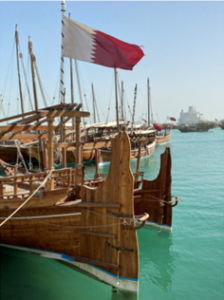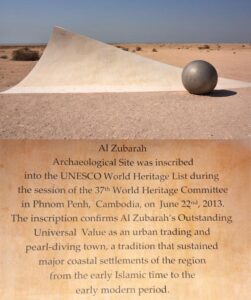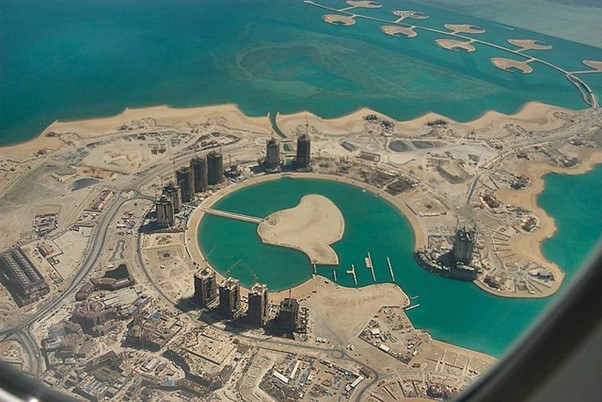My goodness, Pliny the Elder did not like pearls. Or seafood.
“Luxurious living and the corruption of morals arises mostly from shellfish.” (Book 9. 104)
Straight from telling us about crabs running backwards and changing into scorpions, Pliny gets right down to the nitty-gritty (oyster and pearl joke there), and goes on,
“Out of the whole of the natural world, the sea causes most harm to our stomachs.”
Ah, so Pliny the Elder suffered from indigestion. No wonder the sea made him grumpy, although, later on, he admits that oysters are very good at curing stomach-ache. Fortunately, heartburn and trapped wind do not stop Pliny telling us a lot about pearls, and for one who lives in Qatar, this is very interesting.
Pearl-diving was for a long time the most important trade in Qatar, one of very few things that brought significant wealth into the tiny promontory sticking out into the Arabian Gulf. Interestingly, the other commodity, a purple dye made from (of course) the shells of sea creatures, also was famous in the Roman world as a luxury, so maybe Qatar’s modern reputation for wealth and love of luxury is a cultural phenomenon going back thousands of years. Boats specially made for the pearling industry would set off every summer for trips of weeks or months. Nowadays, tourist boats take people across Doha Bay and back for parties.


Cultured pearls put an end to Qatar’s pearl industry, but the pearl is still dear to Qatar, with emblems and reminders all over Doha, where I live. Even the man-made string of islands off the West Bay is called The Pearl.

https://www.gnu.org/licenses/gpl-3.0.en.html
And where better to end than with Pliny the Elder and this story about the habits of oysters:
“Some people say that groups of the shells, like bees, have leaders, notable for their age and size and their ability to keep watch. Pearl-divers make a point of capturing these, and then the others, wandering around, are easily caught in nets.”


One Response
Nice link between Pliny and pearls!